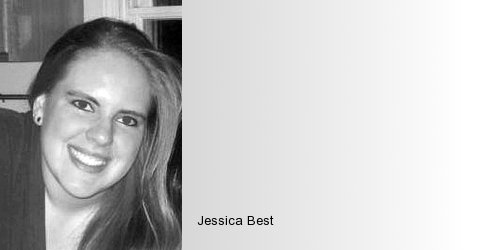By Tara Cavanaugh

Jessica Best is a senior at the University of Michigan. She's a straight ally to the LGBT community and an intern at U of M's Spectrum Center. Here, Jessica chats with us about why she works to support the LGBT community.
1. What do you do at the Spectrum Center?
My responsibilities include putting together the newsletter, keeping track of and updating the events calendar, and updating the social media.
2. Why are you an ally for the LGBT community?
Because (the LGBT community) doesn't really have a lot of allies, especially in regard to the government and the current climate of society. I definitely think right now the status quo supports heterosexuality. That's something that I feel is not fair. I think it's true that LGBT issues are one of the major social justice issues of our generation.
3. What reactions do you get when people learn you're a straight ally?
A lot of the time, the first question people ask me is if I'm gay. And I'll say no, I don't have to be to work (at the Spectrum Center). A lot of people can't understand why I care if I'm not gay.
There are some problems in comparing (support of LGBT rights) to the civil rights movement, but there are some similarities. Then, it wasn't just black people or people of different races asking for (equal rights), it was white people too. That's what made it successful, for everybody to want it.
4. Why do you think it's important for straight people to be allies?
The straight community is in the majority. LGBTQ people are not really treated equally. I think that definitely needs to change. In order for that to change you can't just have the gay community asking for the change. You have to have everyone asking for the change.
I chose to use the term "coming out" in reference to being an ally. A few people I talked to didn't understand how that worked: How can I come out if I'm not gay? I definitely wasn't expecting that kind of response.
5. So what do you mean, "coming out" as an ally?
Support for the community is really important, and it was another way for me to try and show that support.
I had some difficulty with that term because when a person talks about coming out, a lot of times there's a struggle with it, and there's a chance that it would be received in a negative way. I feel like those issues didn't really apply to me in such an extreme. I might get somewhat of a negative response to being an ally, but it's not in the same way.
My parents are kind of over that it at this point. In high school I was in the gay/straight alliance. I've always had a lot of gay friends, so I would talk to my parents about this kind of stuff. Especially my dad. He always asked.
The ally training at the Spectrum Center has given me a good vocabulary to discuss these kinds of issues. They give really concrete ways to talk about gender, gender identity, sexual orientation, and how they're all different.
I've always had conversations with my dad about the morality of homosexuality. But especially now that I have this vocabulary that I can use, our conversations have been much more constructive.
There were a few times where conversations were tough, but I think we're past that now. It's nice that he's being receptive to this stuff too.










